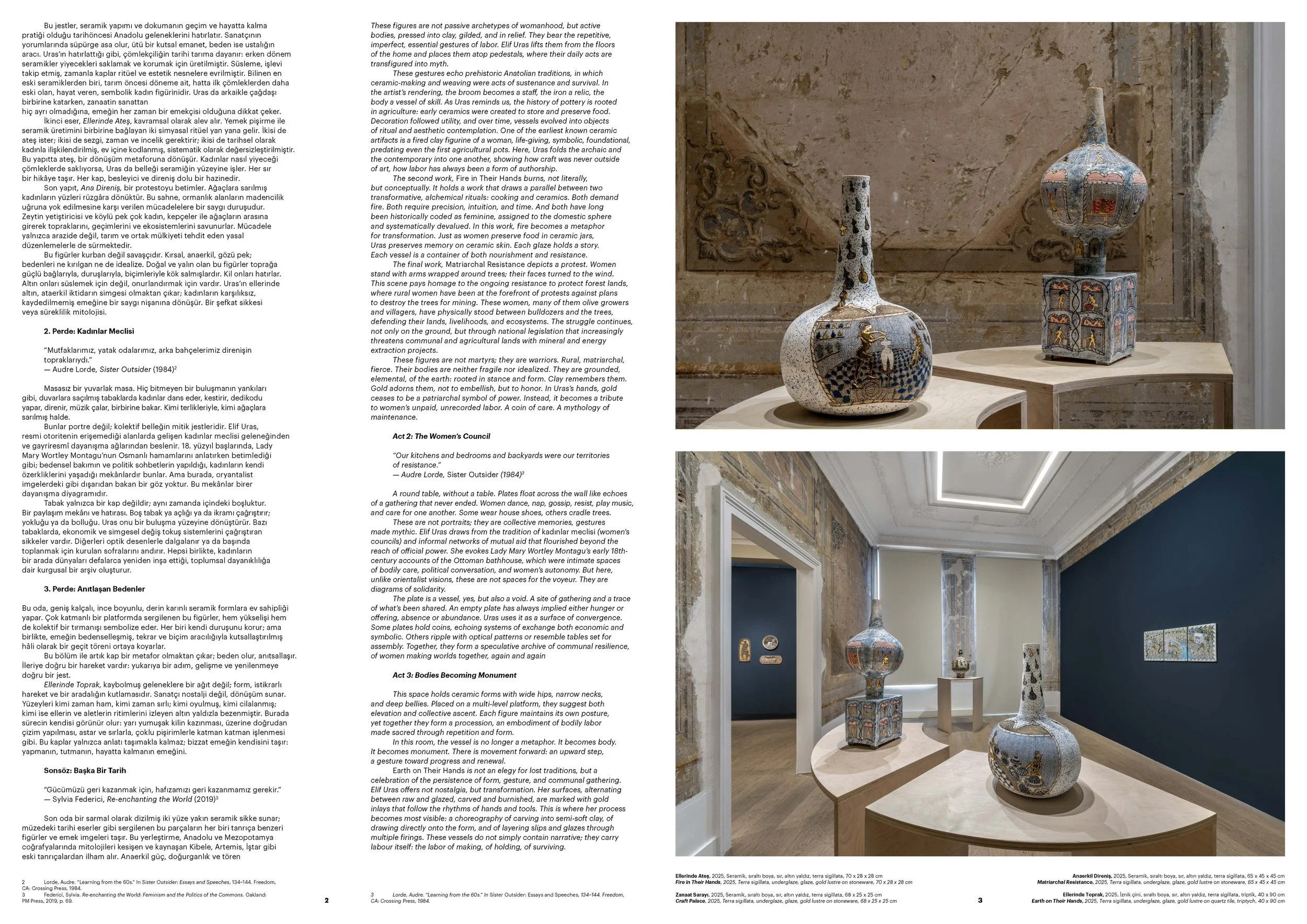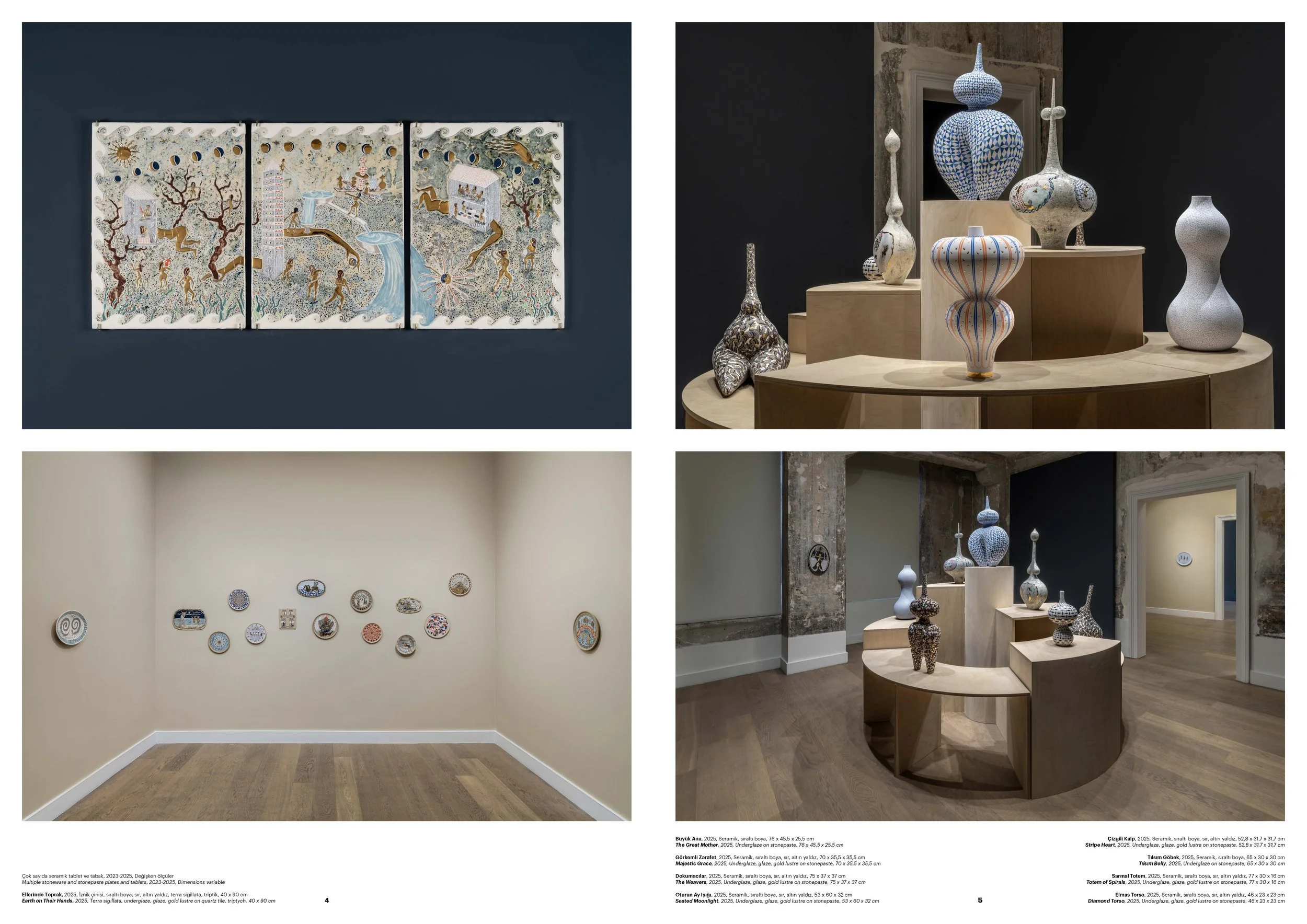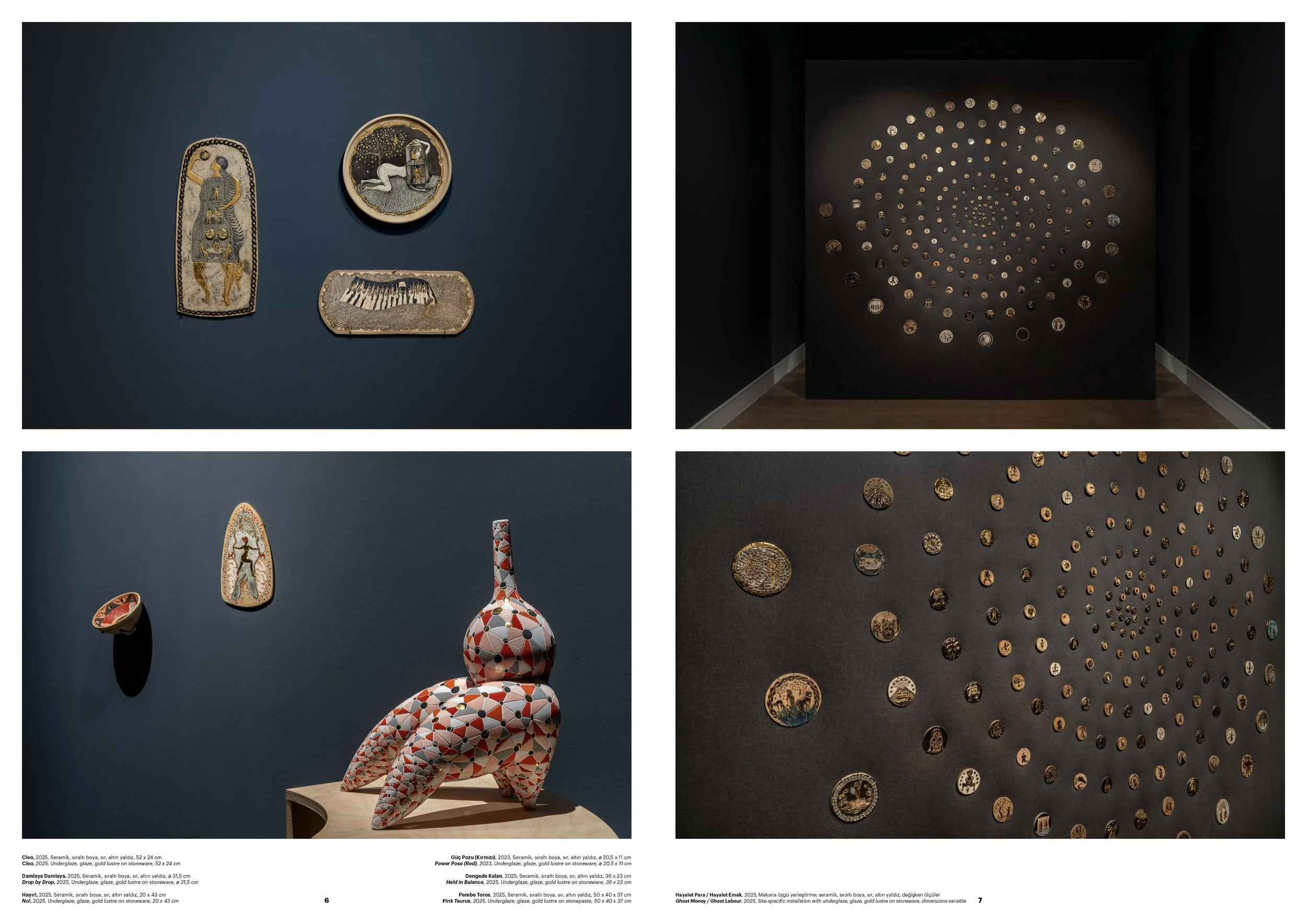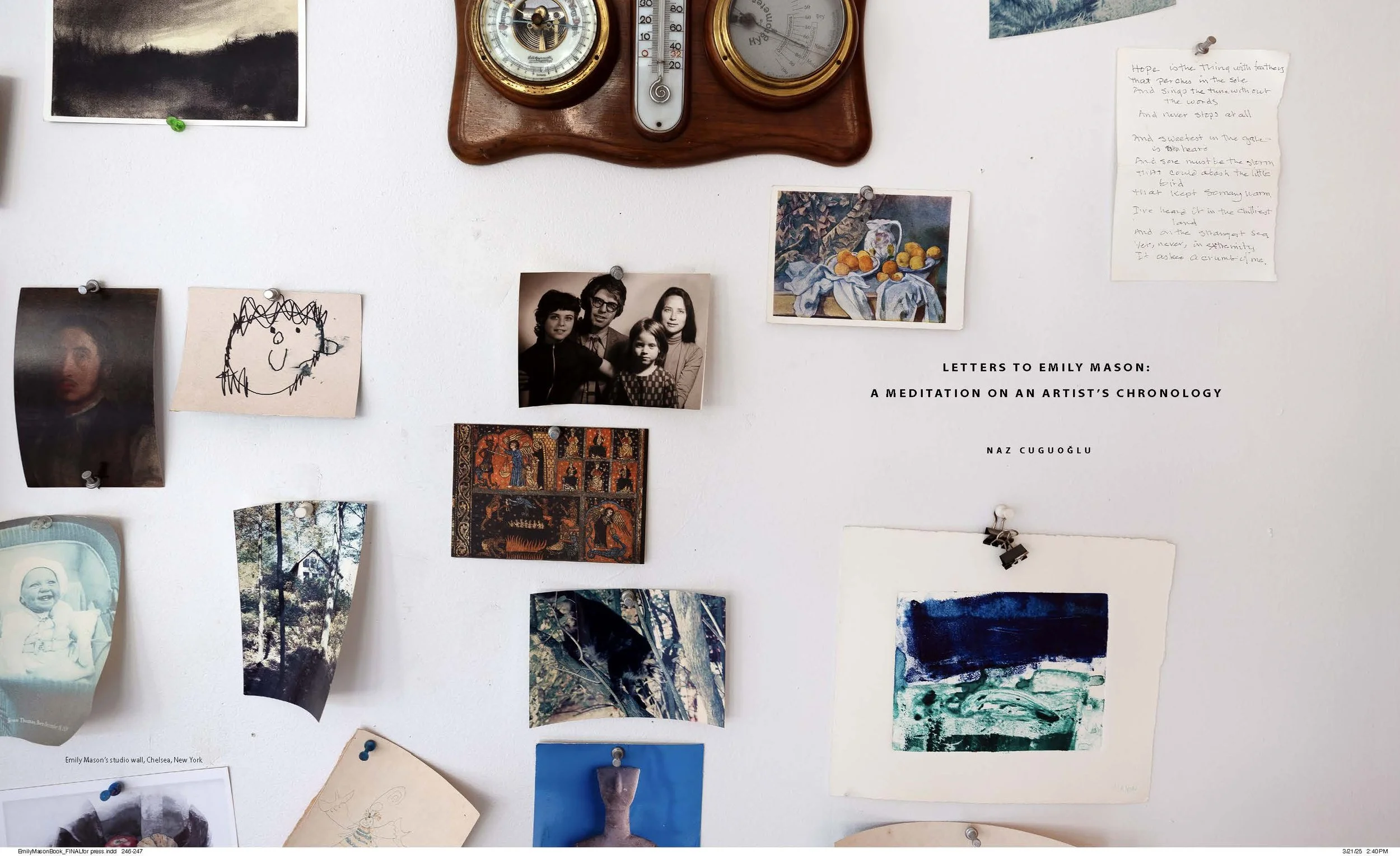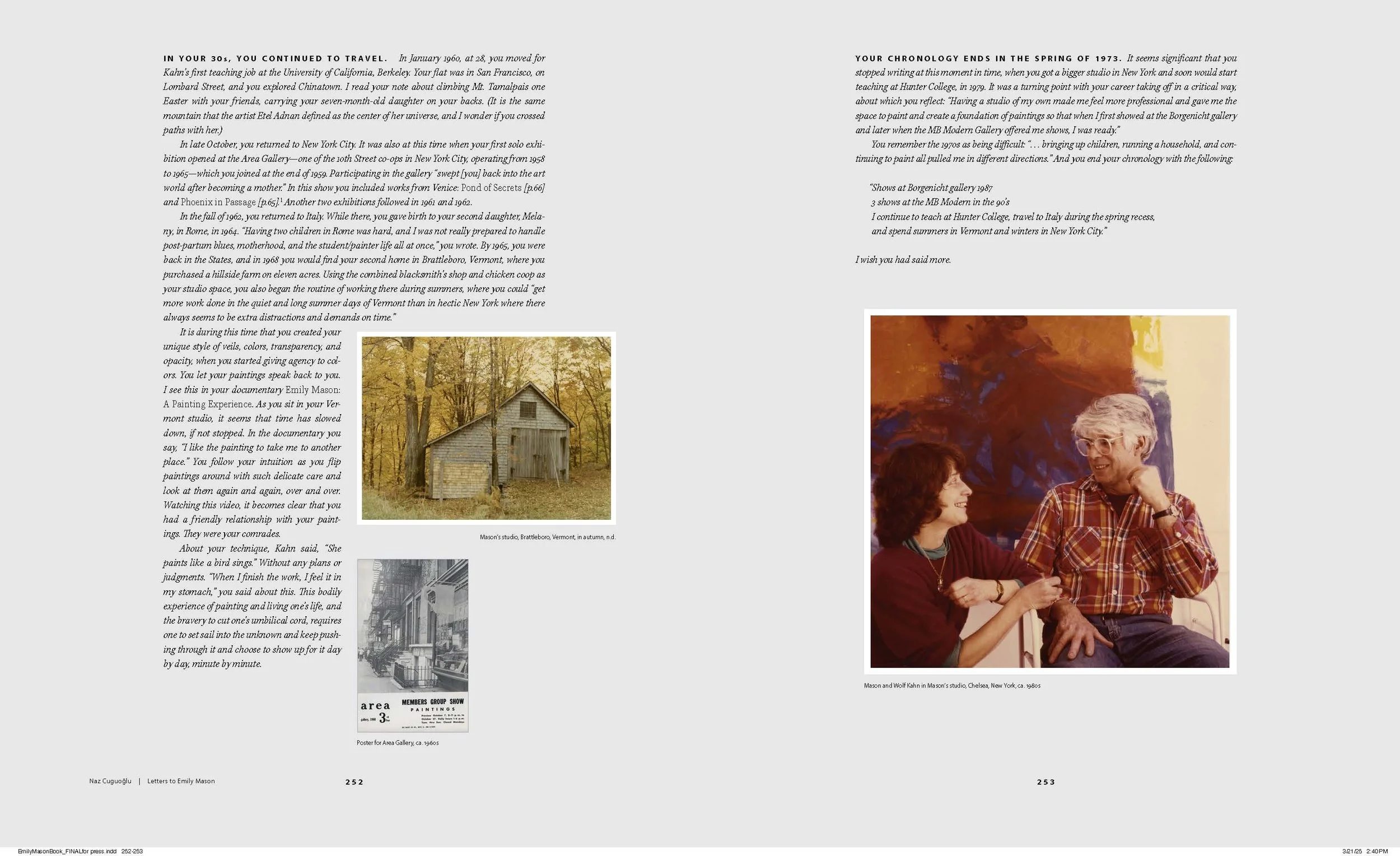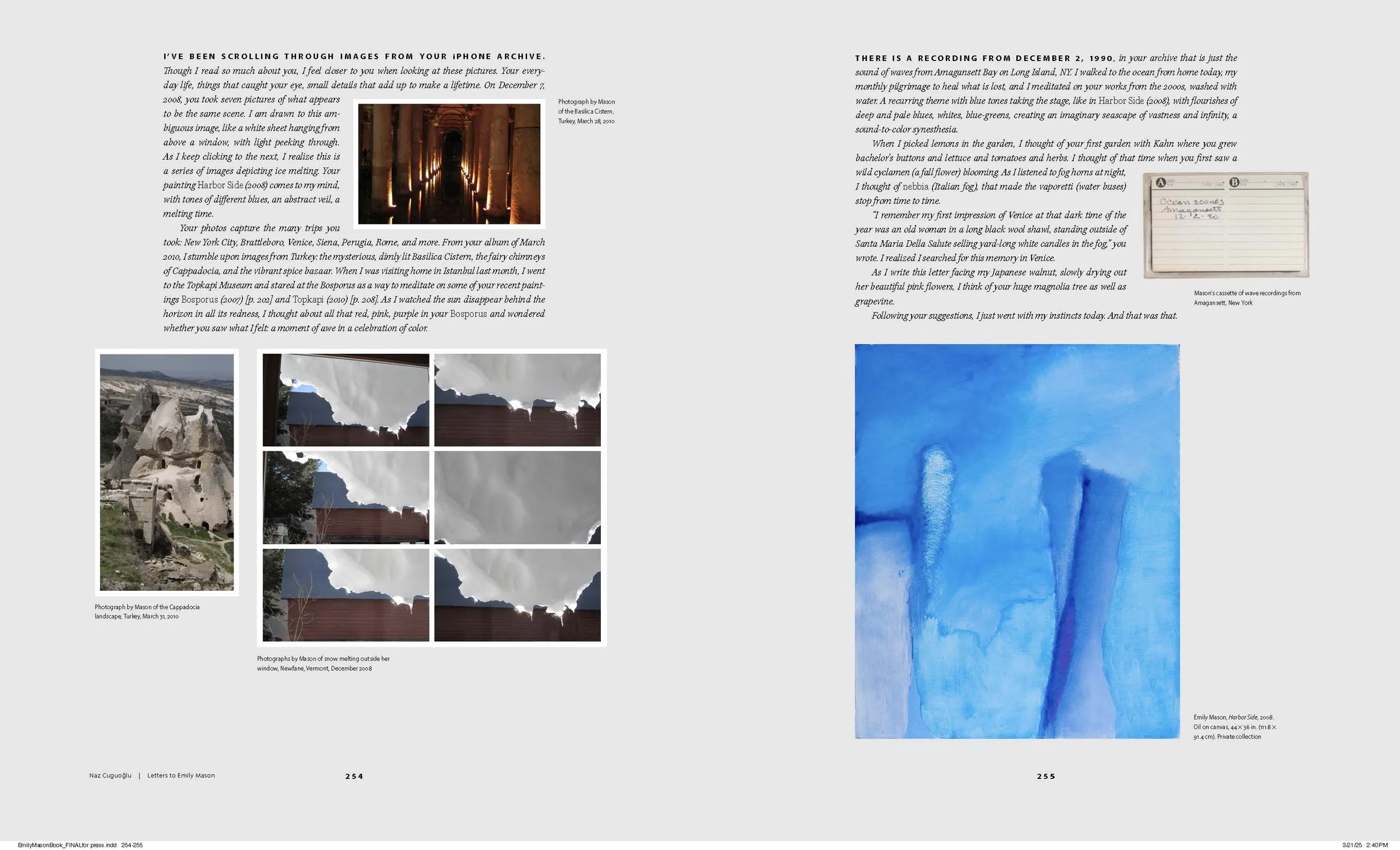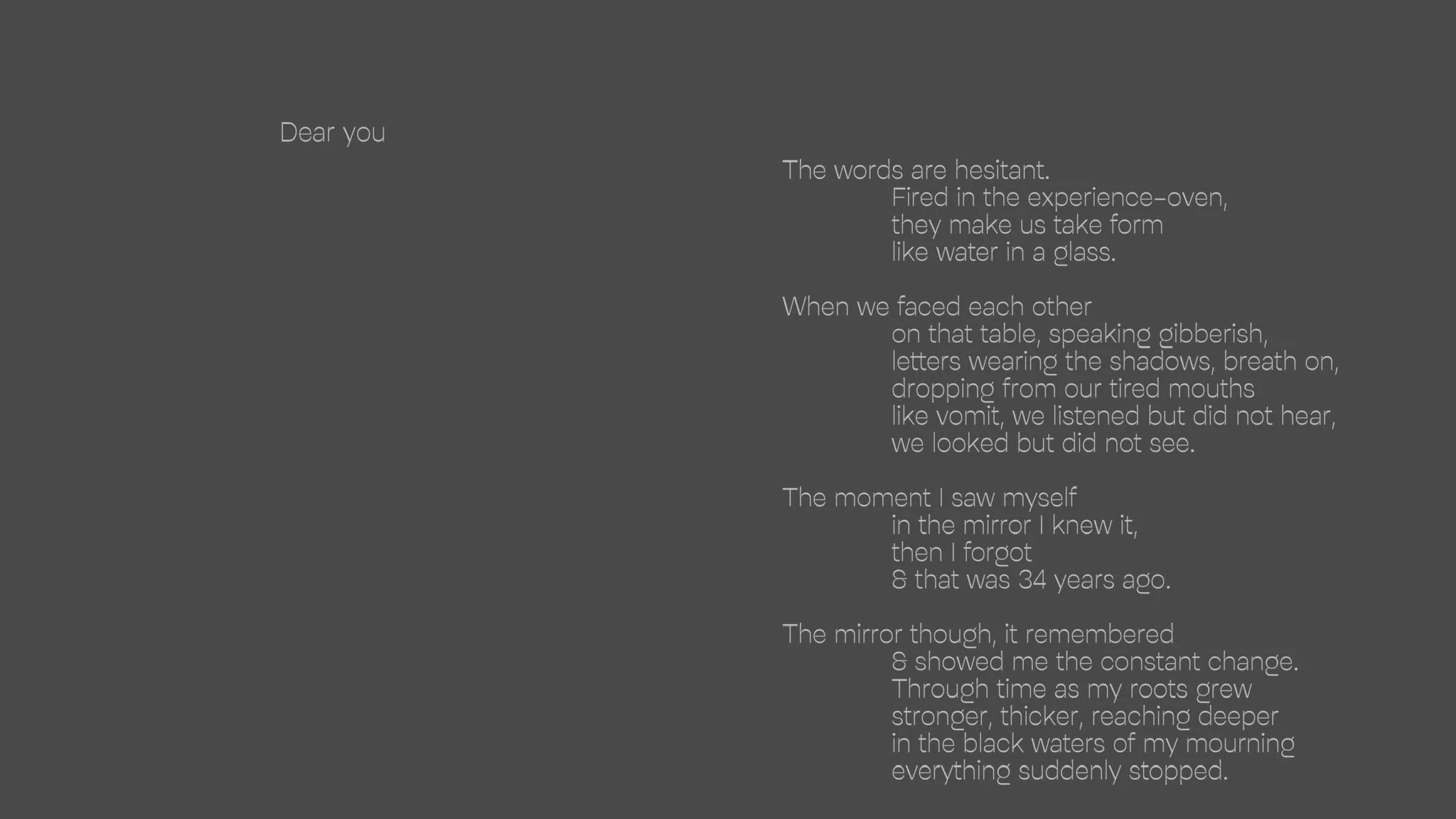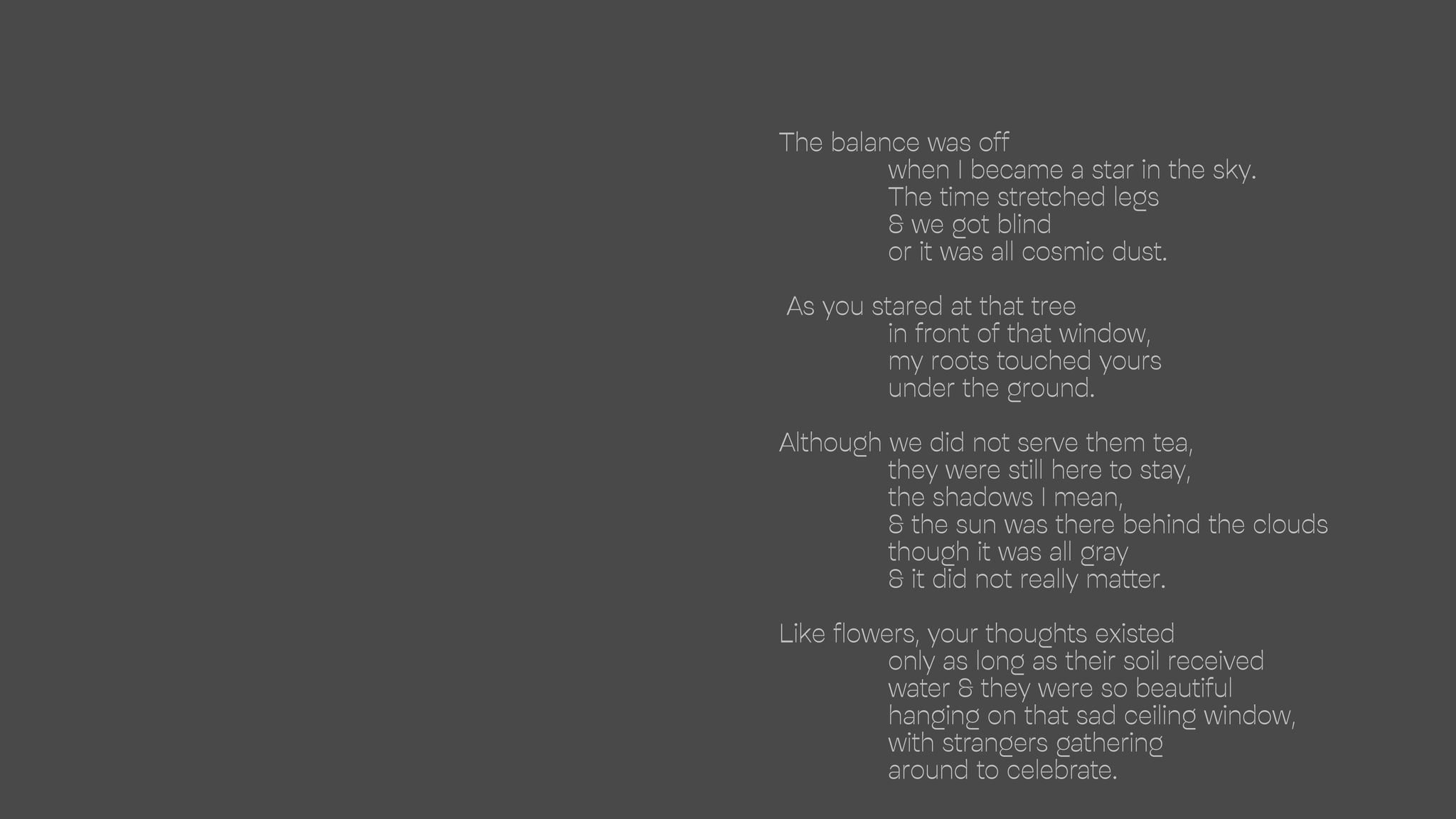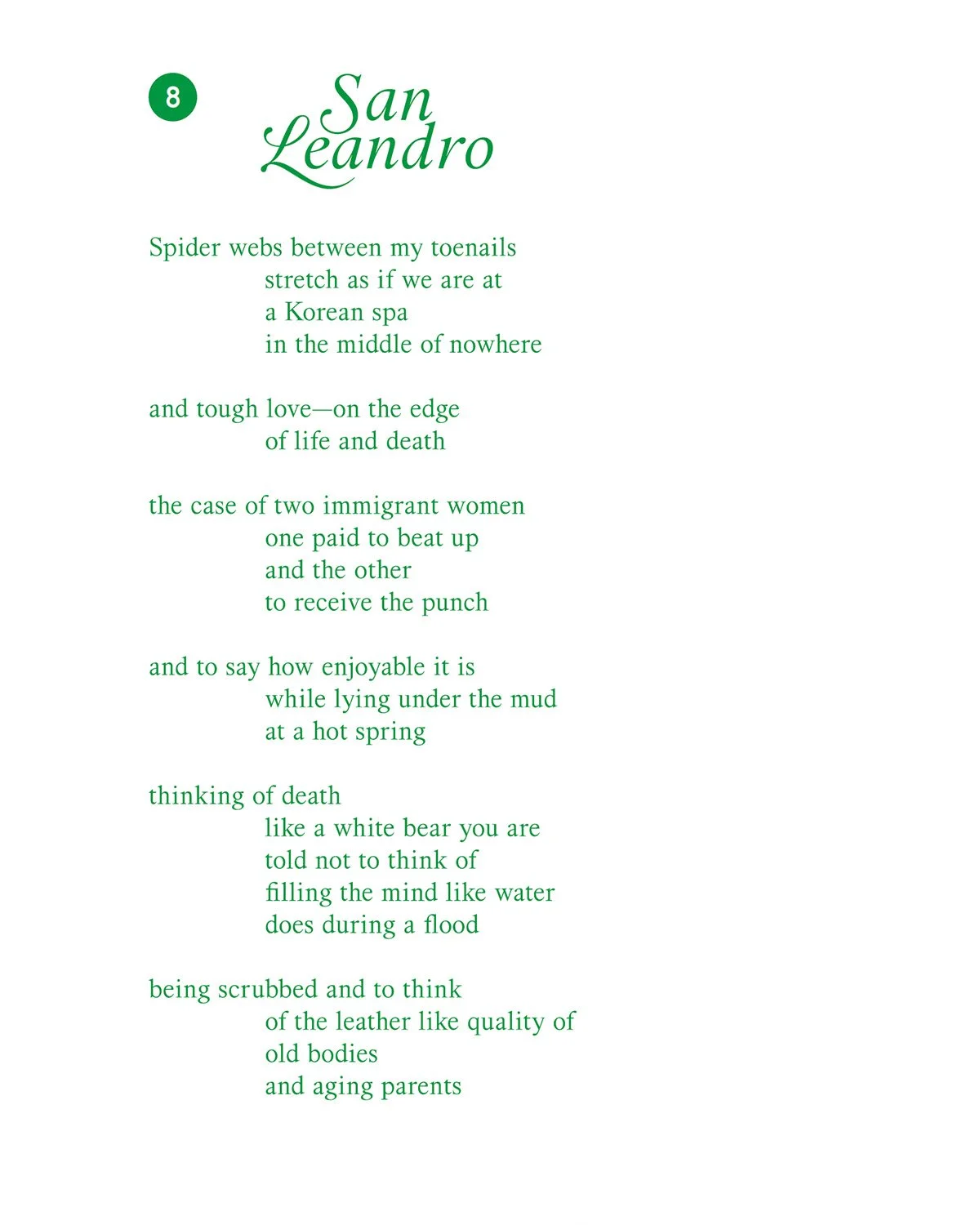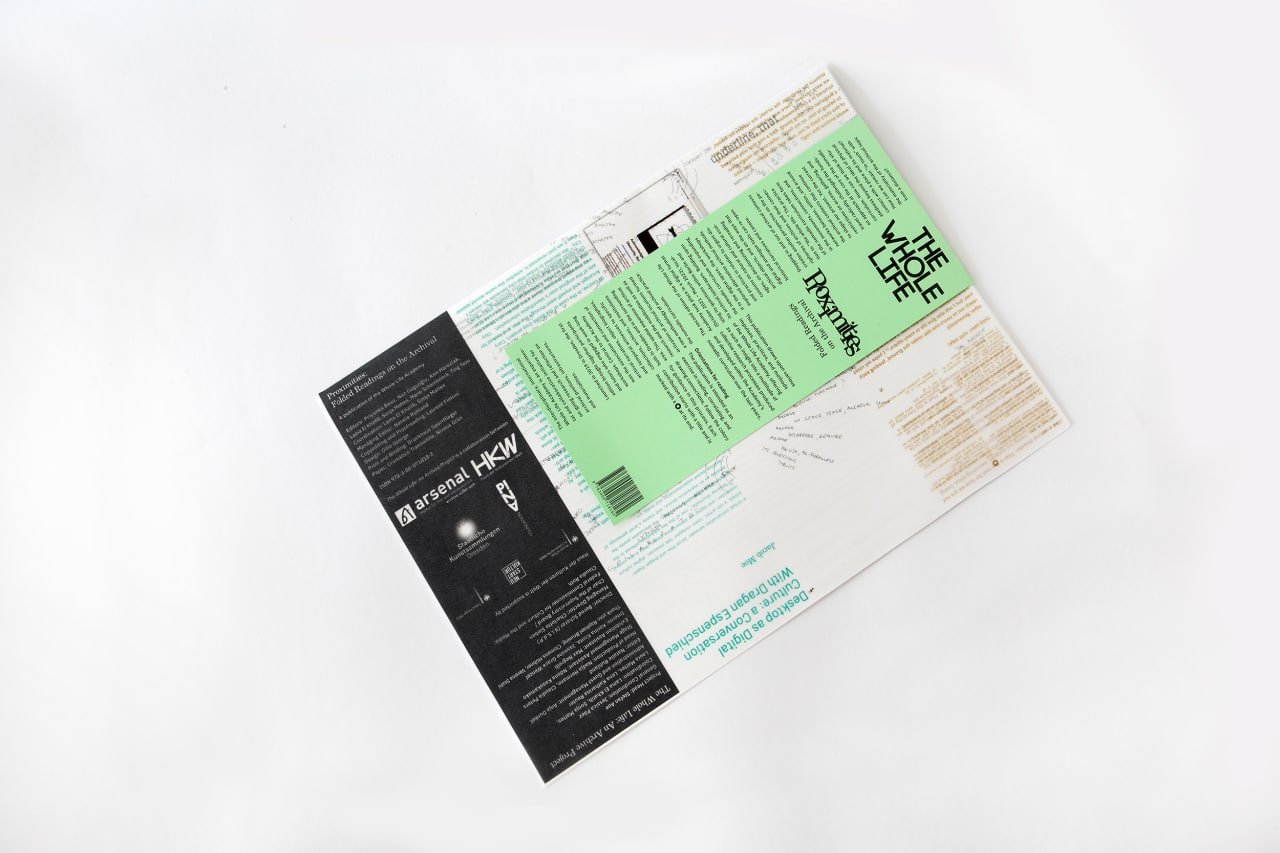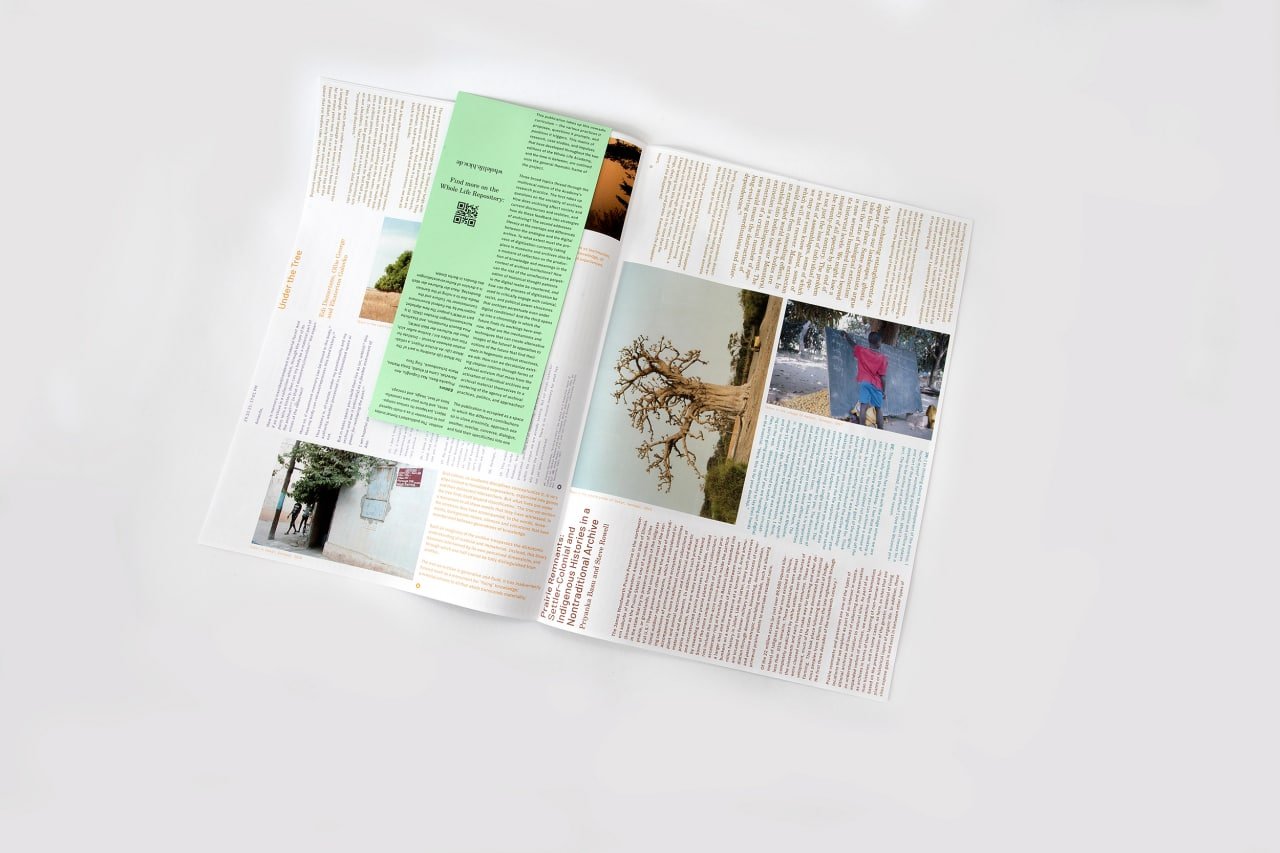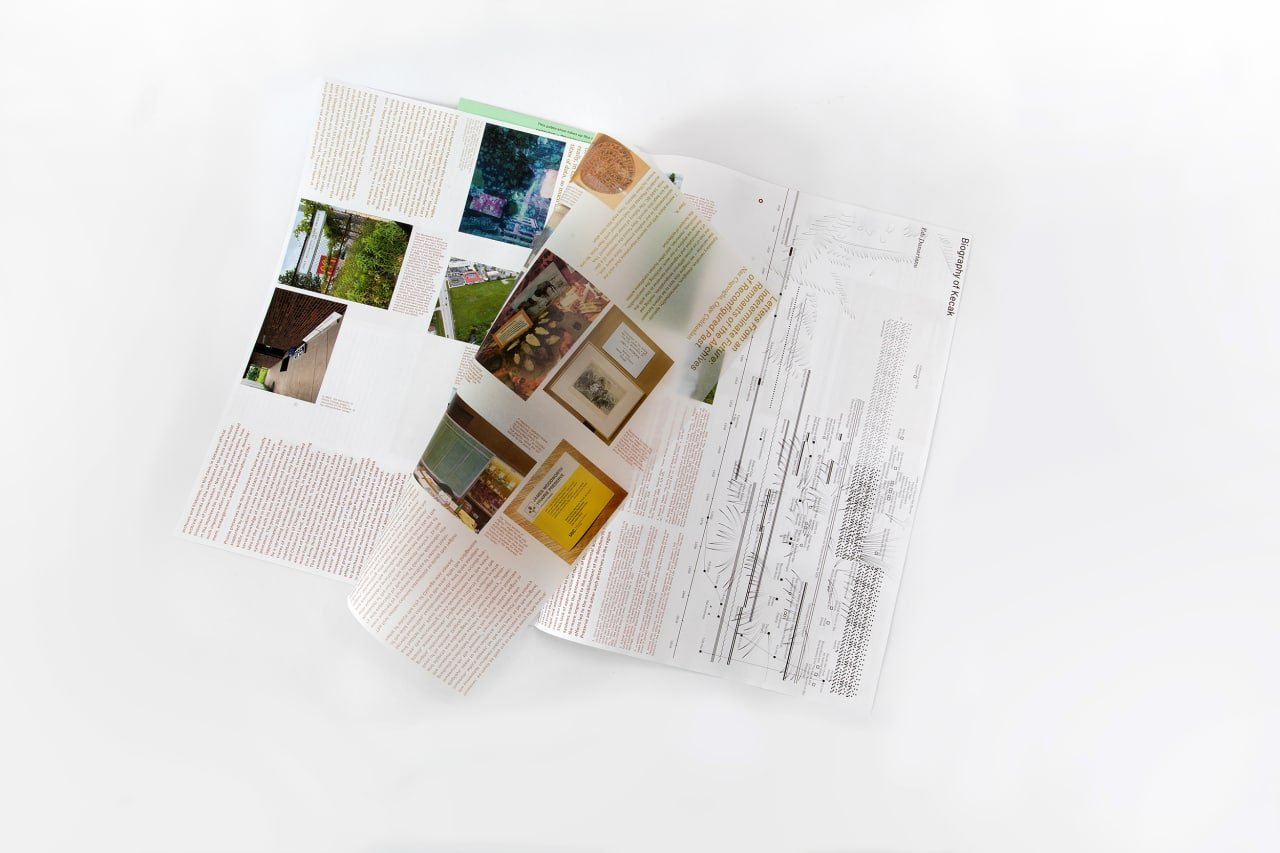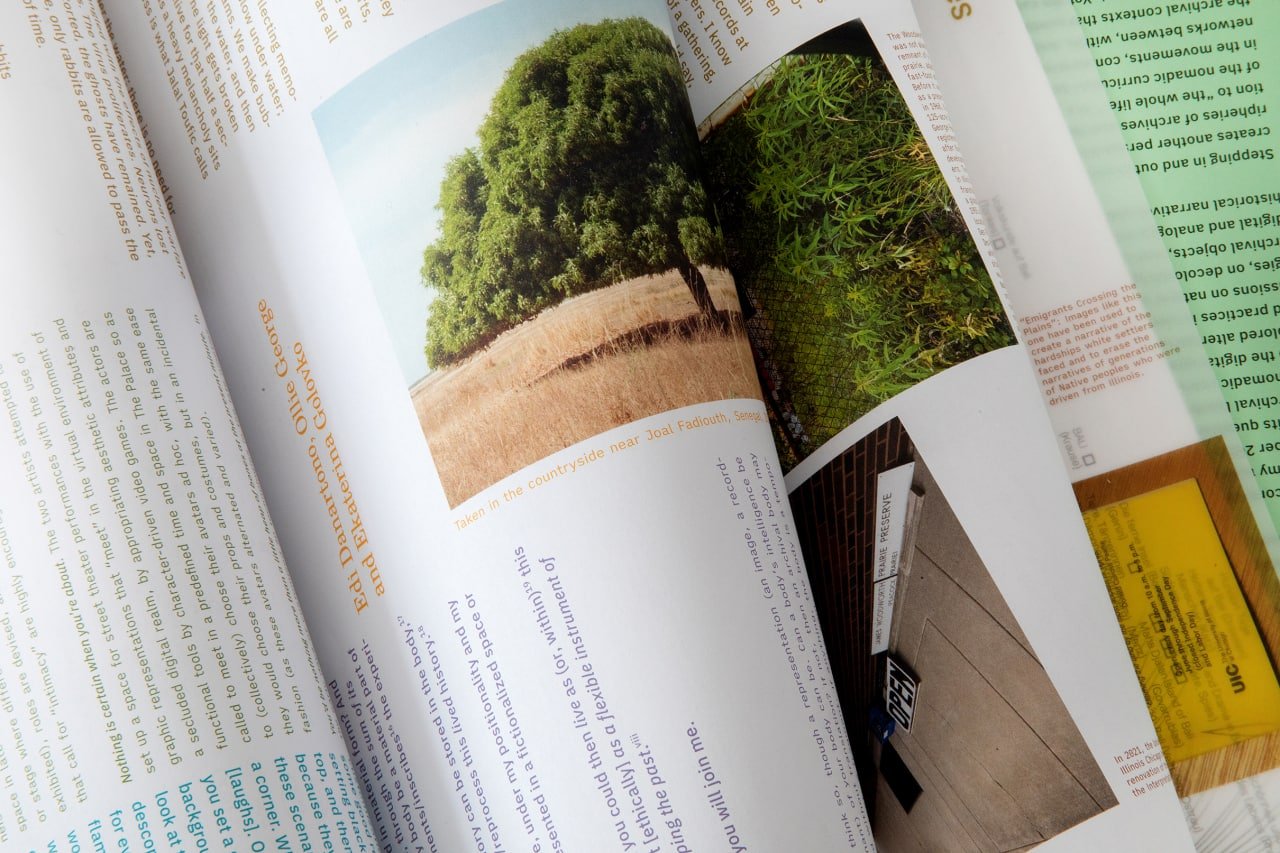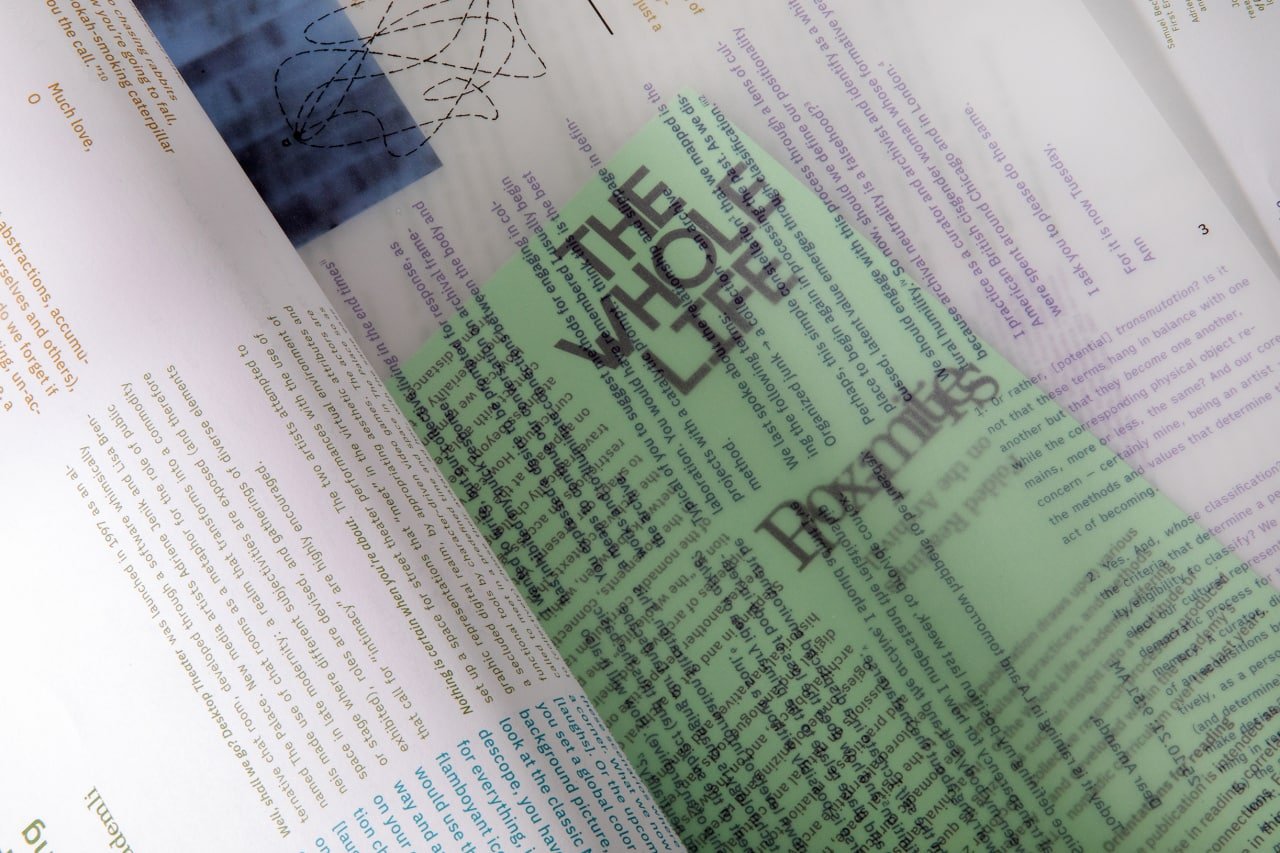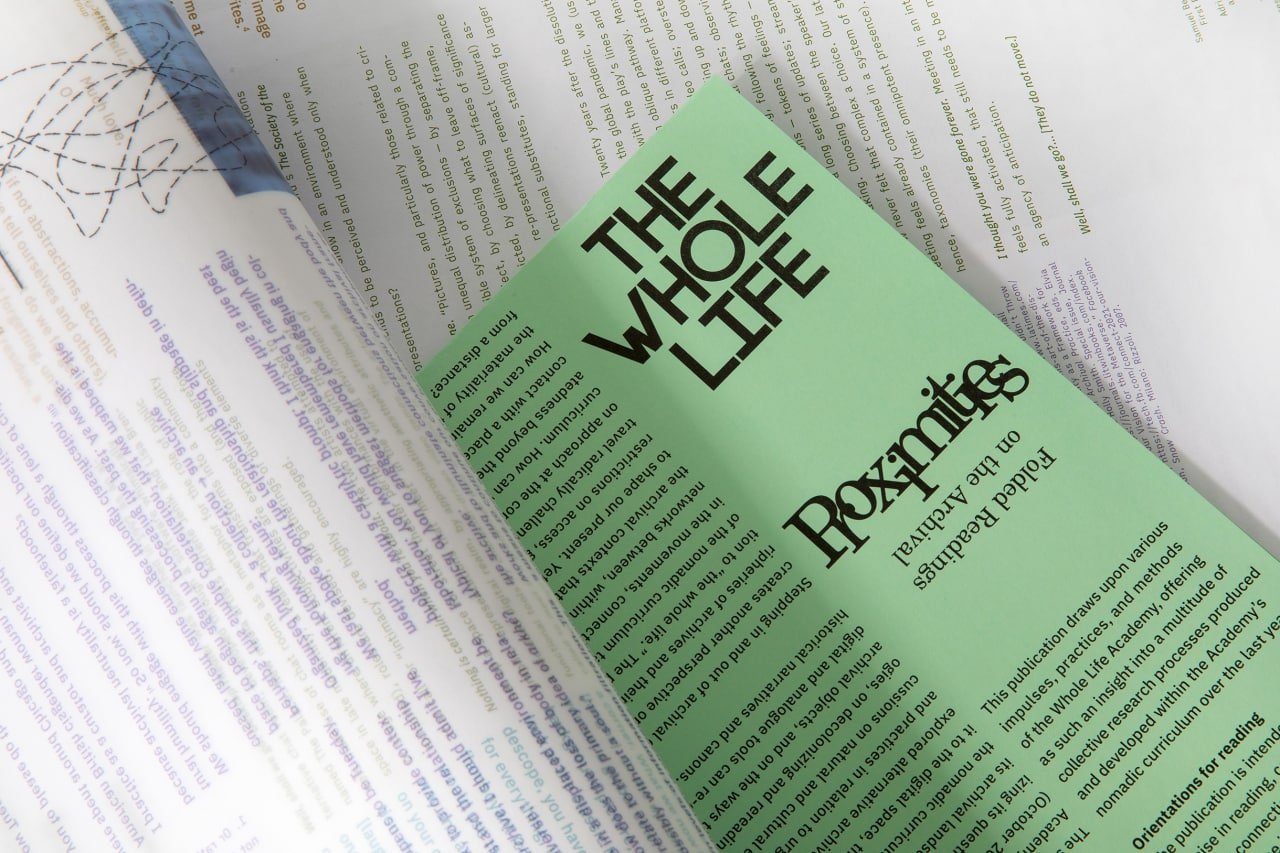TARWUK for White Cube /
White Cube participates in the 2025 edition of The Armory Show, returning for the first time since its inaugural edition in 1994 with a solo presentation of new painting, sculpture and works on paper by the Croatian-born, New York-based artists, TARWUK.
Essay by Naz Cuguoğlu.
Emily Mason Monograph by Rizzoli Electa /
Now available in bookstores and online, Emily Mason: Unknown to Possibility will be the first comprehensive monograph on the life and work of Emily Mason.
Published by Rizzoli Electa, this volume delves into Mason’s artistic evolution, spanning from her education at The Cooper Union to her unique and dedicated approach that transcended conventional art movements. The essays explore her significant works on paper, prints, and clayboards, highlighting her technical mastery and adaptability. Personal writings provide insights into Mason’s reflections and experiences, enriching our understanding of her lasting legacy.
Emily Mason: Unknown to Possibility is edited by Elisa Wouk Almino with a main essay by Dr. Barbara Stehle, and contains contributions by Naz Cuguoğlu, David Ebony, Morgan English, Carrie Moyer, Steven R. Rose, Jenni Sorkin, and Nari Ward.
Press:
Hyperallergic - Our Favorite Art Books of 2025:
“This monograph on the late abstract painter Emily Mason interrogates and beautifies the conceptualization of artistic merit. Essays by those who knew her and were impacted by her, including a series of intimate letters from curator and writer Naz Cuguoğlu, coalesce to offer a poignant picture of why we’re drawn to Mason’s art and, more importantly, how we should honor artists who believe they will change us — because they do. —Nereya Otieno”
Where Do We Go From Here: Reflections on the After Hope Reading Group /
Where Do We Go From Here: Reflections on the After Hope Reading Group
Published in Art, Hope, Action
Edited by Padma Dorje Maitland
Archive Books, 2024
We are proud to share our contribution as Collective Çukurcuma to the anthology Art, Hope, Action, published by Archive Books and edited by Padma Dorje Maitland. Our text, “Where Do We Go From Here: Reflections on the After Hope Reading Group,” reflects on a transnational, eight-week gathering of artists, curators, and researchers held in early 2021—across Istanbul, San Francisco, London, and beyond.
As part of After Hope: Videos of Resistance at the Asian Art Museum, the reading group offered a space for collective mourning and speculative worldbuilding at a time marked by the global pandemic, political unrest, and widespread uncertainty. Together, we read and reflected on texts by Gayatri Chakravorty Spivak, Ursula K. Le Guin, Etel Adnan, Octavia E. Butler, Trinh T. Minh-ha, and others.
Our essay also includes a manual for starting your own reading group, an offering grounded in practices of care, collaboration, and shared inquiry.
The publication features contributions from artists, writers, and collectives engaging with themes of resistance, imagination, and the transformative role of art in crisis.
Learn more / order the book:
https://www.archivebooks.org/art-hope-action/
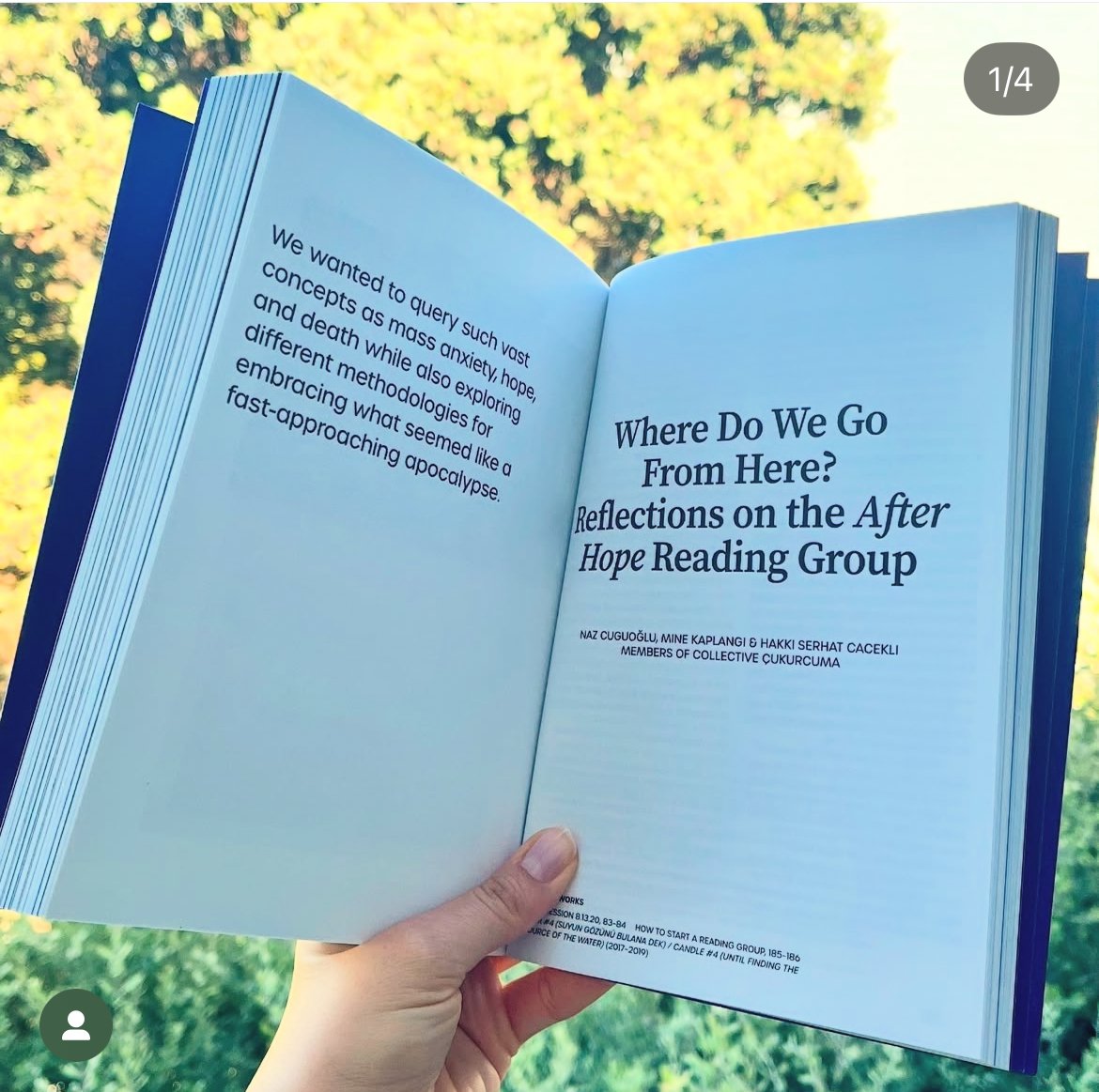
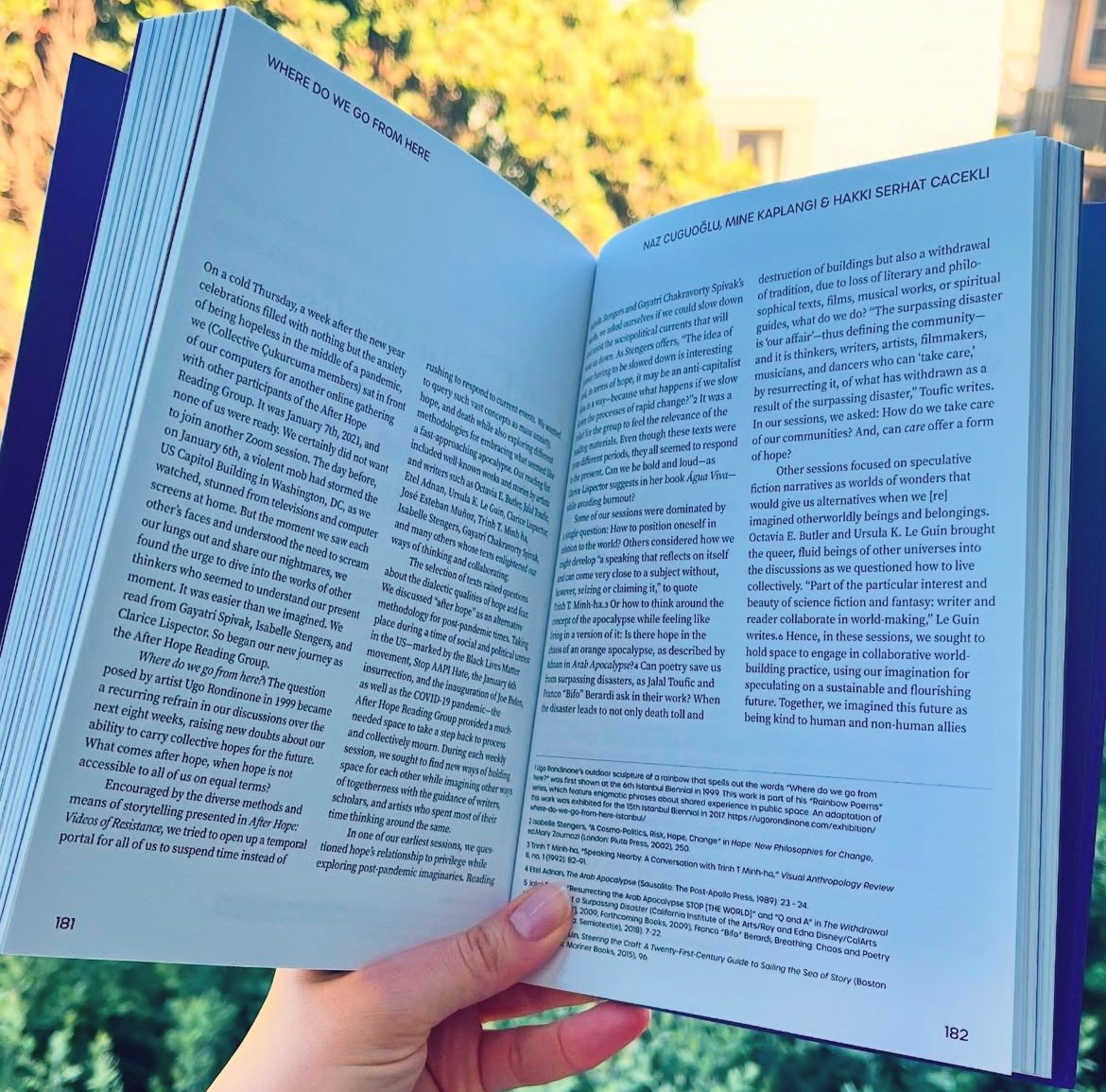
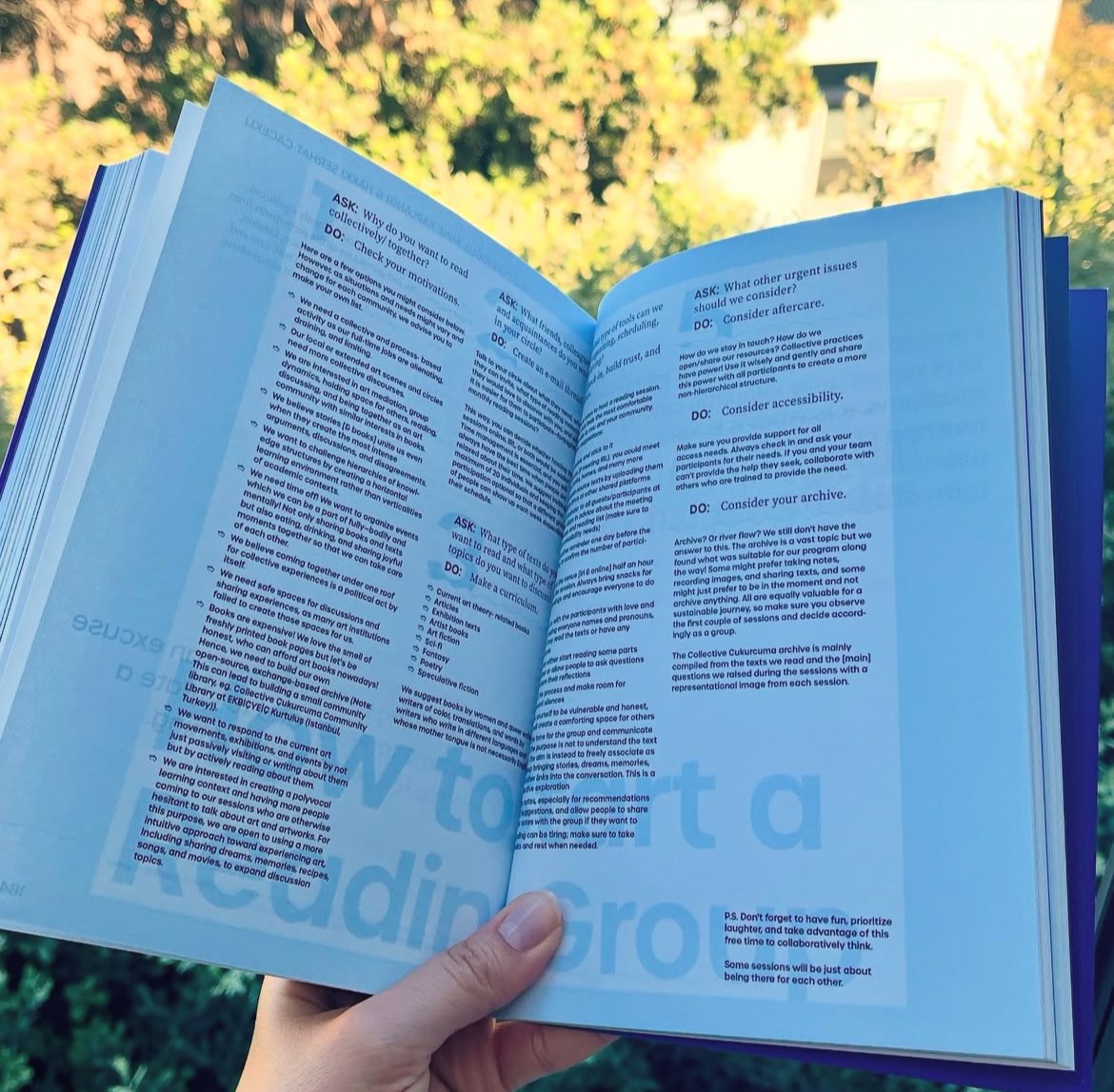

bog bodies press - mnemotope issue 007 /
Tent Press /
Rupy C. Tut // SFMOMA Catalog /
Every two years, SFMOMA celebrates Bay Area artists and our creative community with the SECA Art Award. Established in 1967, the award has honored nearly one hundred local recipients with an exhibition and platform for expanding their practices and sharing their work with new audiences. The 2024 SECA Art Award exhibition celebrates Rose D’Amato, Angela Hennessy, and Rupy C. Tut. Each artist has conceived a gallery with new works that bring distinct perspectives, processes, and materials into the museum.
More information about the catalog.
Imagination as a Radical Duty: Sofía Córdova /
CCA Campus Gallery presents Reunited, a collaboration with the San Francisco Advocacy for the National Museum of Women in the Arts. Complementing the exhibition is a unique catalogue available for purchase that was designed by GRL GRP and printed by Colpa Press. The catalogue is a collection of twelve booklets that provides an in-depth look at each artist’s work
Conversation with Jérôme Sans // Borusan Contemporary /
Naz Cuguoğlu explores Doug Aitken's Naked City exhibition with curator Jérôme Sans, delving into urban life and modern loneliness.
Mirror Remembers /
Written for Tuğçe Evirgen Özmen’s exhibition “mirror remembers” at Staircase, for more information about the exhibition click here.
samfiftyfour Issue VIII /
To order copies: click here.
Onomatopee /
Lebriz Collection Book /
Love Letters // Tohu Magazine /
Love Letters is an exchange of letters and poems between two collaborators, work partners but also good friends who used to share the same city but departed due to personal decisions. As the co-founders of Collective Çukurcuma, Mine Kaplangi and Naz Cuguoglu have been experimenting on collective writing in recent years. For this special issue they write Love Letters to one another.
Reforming Relationships in the Classroom // Art Asia Pacific /
Review: Carlos Villa Worlds in Collision // Art Asia Pacific /
Letters from indeterminate future: Remnants of the archives of reconfigured past // HKW Haus der Kulturen der Welt /
Letters from indeterminate future: Remnants of the archives of reconfigured past
by Naz Cuguoğlu, Özge Çelikaslan
Crowstep Poetry Journal /
A Cosmological Feast (For M) / this / try
〰️
A Cosmological Feast (For M) / this / try 〰️
The Art World’s Tainted Love for “Discovering” Artists: The Case of Etel Adnan // HYPERALLERGIC /
“What does the discovery narrative do? On the one hand, it gives more visibility and acknowledgement; on the other hand, it narrows down complicated histories — or omits them altogether. Artists being presented by Western institutions for the first time get portrayed as exhibiting for the first time in their careers. This understanding assumes that they were not acknowledged before. This institutional narrative of “rediscovered” artists therefore creates a myth around their practice. Their histories outside Western institutions or by non-Western curators do not get counted. Eventually, discovery assumes the prerequisite of an acknowledgment from the cultural mainstream, one “naturally” positioned in the West. It creates a hierarchy between West and non-West, between institutional spaces in the cultural mainstream — museums and acclaimed institutions — and spaces and cultures relegated to outsider status: alternative exhibition spaces, galleries, non-Western museums, and small or mid-sized institutions.”
AN ATTEMPT TO RECALL AND REVIVE: WITH JOHN GERRARD ON ENDLING (MARTHA) // Borusan Contemporary /
In the introduction to the project titled Endling (Martha) by John Gerrard, there is a quote by Samuel Butler’s novel Erewhon (1872), which touches upon the question of consciousness when it comes to machines, and its similarities to how humans approach animals. While we have been domesticating, taking advantage of, and consuming our nonhuman allies for centuries, Gerrard defines Martha as “a hybrid form, a data object in dialogue with photography, history and ecology.” Keeping in mind that history is subjective, constructed, man-made, and photography is sensitive to power hierarchies (by creating a structure between subject and object), I posed my questions to Gerrard to comprehend how he approaches this triangle of relations coupled with ecology and how he challenges those taken-for-granted narratives, turn them on their heads, and suggest a fresh narrative by keeping his own vulnerabilities present.

